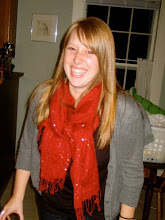There are a lot of things that I worry about when it comes to returning to America. Nose picking and spitting food (i.e. fish bones) on the ground while eating being two of them. I have also though about elements of professional life that are very different and how I will readjust--the most prominent being meetings. Let me highlight some aspects of the Gambian meeting (and let this serve as a warning to my potential future employees in America).
- Starting Time: whenever someone gives me a time that a meeting is supposed to start I do a very intricate calculation in order to determine what time it will actually start. Factors to consider include whose supposed to attend the meeting, what topics are to be discussed, what day of the week it is, how often the group meeting usually meets and if lunch will be provided. Generally I take the proposed starting time as more of a suggestion of what time I should start to think about getting ready in my compound. This being said I am still usually the first to arrive and wait anywhere from 1 to 3 hours for the meeting to start. Hence my Peace Corps (and life) motto--"Bring a book."
- Agenda: A large portion of the "agenda" is reserved for people to give "remarks." Though this is a good practice everyone wants to talk so everyone gives their remarks which are usually very similar derivations of: greeting, thanking Allah for helping them meet, singing the praises of the group/previous speakers, giving advice to the group and relating a long and detailed story of how they came to join the group/attend the meeting. All of these remarks take up so much time that everyone is either exhausted or argumentative when the actual meetings business is commenced. For example at the meeting of skills center representatives I attended yesterday the remarks took from noon to 6 pm with a short prayer break. The only other business completed in this time was the chair reading the groups constitution in English and then translating it into Wolof. By 6 pm everyone was starving so we closed and ate lunch. (Yes, lunch at six o'clock at night, I was about ready to eat my arm) Then they decided to take a break and meet again from midnight to 3 am to plan for the next years activities (the main purpose for calling the meeting in the first place). I didn't make it all the way to 3 am and bowed out and went to bed at 2.
- Multi-Tasking: If I remember correctly it has been somewhat acceptable in America to multi-task during meetings i.e. check email on Blackberrys and respond. But beyond that everyone at least makes a show of paying attention. Here multi-tasking takes on a new meaning. Naps, reading books (usually this is just me), taking and making phone calls, hair braiding, brewing attaya, breastfeeding, playing games on cellphones are all common forms of multi-tasking during a Gambian meeting.
- Networking: In America you get a business card. In the Gambia you get this text message: "RAMATULIE DEFINATELY, ITS TODAY THAT I MEET U, BUT REALLY U ARE IN MY HEART. I REALLY LIKE U TO ACCEPT MY KINDLY LOVE. DAMALA NOB BU BAAX." Enough said.
